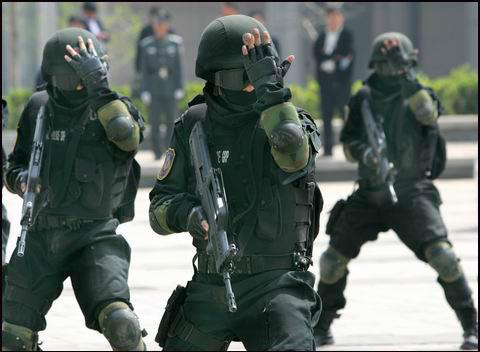
China, Thai Spec Ops Forces Train
16 July, 2008: TAIPEI - Several dozen Chinese and Thai special operations forces began an anti-terrorism training exercise in Thailand's northern province of Chiang Mai on July 11 at the 5th Special Forces Regiment base.
The 20-day exercise, called Strike-2008 and involving 24 troops from each country, follows Strike-2007, conducted in China's Guangdong Province last July.
"This combat training exercise is an elevated part of an ongoing trend in Thai-Chinese relations," said Thitinan Pongsudhirak, director of the Institute of Security and International Studies, Chulalongkorn University, Bangkok.
"It is part and parcel of China's charm offensive and soft power in ASEAN, particularly in mainland Southeast Asia. Previously, the mil-mil component did not receive as much attention and resources, but Beijing has recently stepped up its military and defense cooperation with Thailand," he said. "Senior Thai military sources have indicated that there are now more mid-level Thai military officers being trained in China than ever, and the PLA [People's Liberation Army] offers to take in more."
China has been making itself increasingly "accommodating to the point where they have pledged to their Thai colleagues that they will provide all necessary facilities and support for greater intakes of Thai military officers for training in China."
Growing Sino-Thai mil-to-mil relations has made many in the U.S. military nervous. Since the Vietnam War era, the U.S. has maintained close military relations with Thailand.
Things changed after the military coup in September 2006 when the United States suspended $24 million in military aid and canceled military education programs. Even though the annual joint U.S.-Thai Cobra Gold exercises continued, Washington pressure on the junta leaders continued until the December 2007 elections.
However, China showed little interest in who was in charge in Bangkok. Thai coup leader Gen. Sonthi Boonyaratglin received a red carpet welcome in Beijing just four months after the coup and the junta received $40 million in Chinese military aid.
"In absolute terms, the U.S. is still the most important, but China is gaining ground relatively speaking in being a training ground for up-and-coming Thai military officers. The combined combat exercise is just a small reflection of this broader trend," Pongsudhirak said.
China has also been very accommodating in working with Thailand to procure arms. In 2005, Thailand procured 96 Chinese NORINCO WMZ-55B1 six-wheel-drive armored personnel carriers at $300,000 apiece in a deal involving 100,000 tons of dried logan fruit. Russia made a similar deal with in 2005 for $25 million in rice for four Mi-17 transport helicopters.


















No comments:
Post a Comment